 Approximately 30% of people over 65 years of age living in the community fall each year.
Approximately 30% of people over 65 years of age living in the community fall each year.
This Cochrane review updates what we know. Continue reading Reducing the rate and risk of falling
 Approximately 30% of people over 65 years of age living in the community fall each year.
Approximately 30% of people over 65 years of age living in the community fall each year.
This Cochrane review updates what we know. Continue reading Reducing the rate and risk of falling
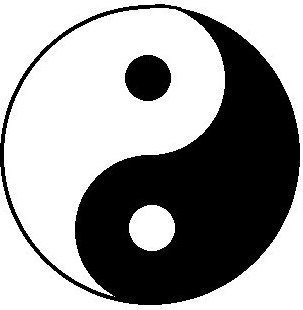 Patients with Parkinson’s disease have impaired balance, which affects function and increases the risk of falling. Exercise is routinely encouraged by healthcare providers, but few programs have been proven effective.
Patients with Parkinson’s disease have impaired balance, which affects function and increases the risk of falling. Exercise is routinely encouraged by healthcare providers, but few programs have been proven effective.
Researchers at the Oregon Research Institute, in Eugene, studied whether a tailored tai chi program could improve postural control in patients with Parkinson’s disease. Continue reading Tai chi benefits in Parkinson’s disease
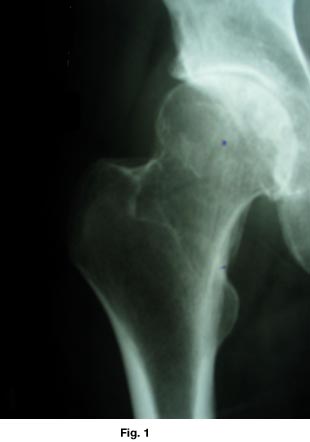 Former Medical Director, of the Rosenthal Center for Complementary & Alternative Medicine, at Columbia University Medical Center, in New York City, Dr. James Dillard, reviewed the evidence.
Former Medical Director, of the Rosenthal Center for Complementary & Alternative Medicine, at Columbia University Medical Center, in New York City, Dr. James Dillard, reviewed the evidence.
Here’s what we know. Continue reading Complementary treatments for osteoarthritis
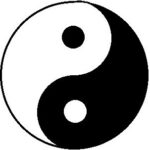 Prof. Ernst and a colleague critically evaluated the systematic reviews of tai chi for any improvement of medical conditions or clinical symptoms. Continue reading Reviewing the reviews of tai chi
Prof. Ernst and a colleague critically evaluated the systematic reviews of tai chi for any improvement of medical conditions or clinical symptoms. Continue reading Reviewing the reviews of tai chi
 Most people suffering from fibromyalgia use a variety of complementary or alternative medicine treatments to manage their symptoms.
Most people suffering from fibromyalgia use a variety of complementary or alternative medicine treatments to manage their symptoms.
Prof. Ernst has updated his review of the CAM options from a year ago. Continue reading Review of CAM for fibromyalgia
 Researchers at the University of Sydney, in New South Wales, Australia, determined the effect of tai chi exercise on persistent low back pain. Continue reading Improvement in back pain with tai chi
Researchers at the University of Sydney, in New South Wales, Australia, determined the effect of tai chi exercise on persistent low back pain. Continue reading Improvement in back pain with tai chi
 Preliminary evidence suggests that meditative exercise may have benefits for patients with chronic systolic heart failure
Preliminary evidence suggests that meditative exercise may have benefits for patients with chronic systolic heart failure
Researchers in Boston, Massachusetts, investigated whether tai chi, in addition to standard care, improves functional capacity and quality of life in these patients. Continue reading Tai chi for heart failure patients
 Researchers at Ho Miu Ling Nethersole Hospital, in Hong Kong, China, studied patients with end-stage kidney disease — complete, or almost complete failure of the kidneys to function.
Researchers at Ho Miu Ling Nethersole Hospital, in Hong Kong, China, studied patients with end-stage kidney disease — complete, or almost complete failure of the kidneys to function.
The hardest part is maintaining commitment. Continue reading Benefits of tai chi in patients with kidney disease
 It’s probably one of the most popular uses of CAM.
It’s probably one of the most popular uses of CAM.
Researchers in Australia reviewed the evidence. Continue reading CAM for insomnia?
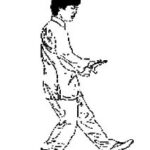 Past studies have been criticized because of poor study design, according to Prof. Ernst.
Past studies have been criticized because of poor study design, according to Prof. Ernst.
Researchers from Bastyr University tighten up the design and report their results. Continue reading A well-designed study of qigong in type 2 diabetes
 Reduced aerobic capacity in people osteoarthritis of the lower limbs affects independence and the ability to perform everyday activities.
Reduced aerobic capacity in people osteoarthritis of the lower limbs affects independence and the ability to perform everyday activities.
Researchers at Universidad de Extremadura, in Spain, reviewed exercise programs and the ability to perform activities require sustained aerobic metabolism. Continue reading Comparing exercise programs in people with osteoarthritis
 A multifactorial fall-risk assessment including a fall history, physical exam, gait and balance evaluation, and environmental assessment is recommended for all older adults who have fallen or have a problem with gait or balance, according to Dr. Sara Bradley, assistant professor of geriatrics and palliative medicine at Mount Sinai School of Medicine, in New York City. Continue reading Lower your risk of falling
A multifactorial fall-risk assessment including a fall history, physical exam, gait and balance evaluation, and environmental assessment is recommended for all older adults who have fallen or have a problem with gait or balance, according to Dr. Sara Bradley, assistant professor of geriatrics and palliative medicine at Mount Sinai School of Medicine, in New York City. Continue reading Lower your risk of falling
 During the New Clinical Drug Evaluation Unit Meeting, researchers at David Geffen School of Medicine at the University of California, Los Angeles, reported that adding tai chi to escitalopram (Lexapro, Cipralex, Seroplex) treatment further reduced the severity of depression. Continue reading Adding tai chi improves antidepressant drug therapy
During the New Clinical Drug Evaluation Unit Meeting, researchers at David Geffen School of Medicine at the University of California, Los Angeles, reported that adding tai chi to escitalopram (Lexapro, Cipralex, Seroplex) treatment further reduced the severity of depression. Continue reading Adding tai chi improves antidepressant drug therapy
![]() During the annual scientific meeting of the American College of Rheumatology, researchers at the University of North Carolina at Chapel Hill School of Medicine reported (abstract 698) the results of the largest study to date of the Arthritis Foundation’s Tai Chi program. Continue reading The Arthritis Foundation’s tai chi program
During the annual scientific meeting of the American College of Rheumatology, researchers at the University of North Carolina at Chapel Hill School of Medicine reported (abstract 698) the results of the largest study to date of the Arthritis Foundation’s Tai Chi program. Continue reading The Arthritis Foundation’s tai chi program
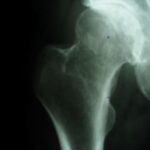 There’s a growing recognition of the importance of physical exercise to reduce pain in knee and hip joints.
There’s a growing recognition of the importance of physical exercise to reduce pain in knee and hip joints.
Researchers at Universidad de Extremadura, in Spain, compared the effectiveness of exercise programs on pain in patients with hip and knee osteoarthritis. Continue reading Exercise? Yes, but which one for osteoarthritis?
 Fear of falling may lead to activity restriction that is self-imposed rather than due to actual physical impairments.
Fear of falling may lead to activity restriction that is self-imposed rather than due to actual physical impairments.
Researchers in Canada and Israel reviewed CAM treatment options. Continue reading Tai chi improves low balance confidence
 Researchers at the Chinese University of Hong Kong have reported the interim findings of the effects of a mind body physical exercise (tai chi) on cognitive function in Chinese people at risk of cognitive decline. Continue reading Tai chi and the risk of cognitive decline
Researchers at the Chinese University of Hong Kong have reported the interim findings of the effects of a mind body physical exercise (tai chi) on cognitive function in Chinese people at risk of cognitive decline. Continue reading Tai chi and the risk of cognitive decline
 Home-based exercises are effective, according to researchers in Finland. Continue reading Long-term benefits of exercise on fall prevention in the elderly
Home-based exercises are effective, according to researchers in Finland. Continue reading Long-term benefits of exercise on fall prevention in the elderly
 Researchers at the University of Vermont, in Burlington, compared 3 different options. Continue reading Improving effectiveness of tai chi to prevent falls
Researchers at the University of Vermont, in Burlington, compared 3 different options. Continue reading Improving effectiveness of tai chi to prevent falls
 Researchers in Spain and Sweden measured the response to the effects of 4 month of tai chi in men with fibromyalgia. Continue reading Fibromyalgia after 4 months of tai chi
Researchers in Spain and Sweden measured the response to the effects of 4 month of tai chi in men with fibromyalgia. Continue reading Fibromyalgia after 4 months of tai chi